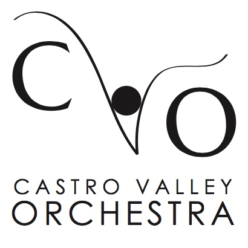by Doris Marx
I remember my ninth birthday. Our tradition was that the dining table would hold birthday presents for that year and were the first things seen upon rising on birthday morning. That year, in the middle of the table sat a black case containing a 3/4 sized violin. I had never asked for an instrument . My parents had both played piano in Germany where they lived until 1938 so there was no question that their daughter would also learn an instrument. My father worked at the Statler Hotel where many celebrities stayed while performing with the Buffalo Philharmonic. My father became acquainted with the pianist, Rudolf Serkin, and one day asked when a child should start an instrument. His answer was at nine.
I had a little boxed set of 45 rpm records with a side for each orchestra instrument which I played until they wore out. In fourth grade, the music teacher tested us for musical ability; I was too busy talking to a classmate and missed the instructions so naturally I flunked the test. Undeterred, my parents got me private lessons on that birthday violin. I got into the school orchestra and soon switched to the music instructor for my private lessons. He taught me until high school when I was unleashed on Harry Taub, the Philharmonic’s Associate Concertmaster. He soon gave up on getting me to memorize pieces and I was able to avoid recitals. My path as an orchestra player was assured.
Several others in the high school orchestra also studied with Philharmonic members and we went as a group to concerts and visited our teachers during intermission. At that time, there were many contemporary composers in residence at University of Buffalo so the big push was to introduce modern music to the audience. I remember we students registering our disapproval of John Cage by getting up en masse (15 of us) and walking out during one of his pieces. My teacher told me that before the rehearsals, the orchestra members were told to raid their children’s toy chests for “instruments.” My teacher had his son’s yellow umbrella. A clarinetist was sitting next to a bottle that was as tall as she was, sitting. Every few minutes she moaned into the bottle. I wonder if that was on the score or her opinion of what they were doing.
There were many opportunities to meet student musicians from all over the state in various ensembles. One time, some of us were chosen to take part in a fund-raising film with the Buffalo Philharmonic. Josef Krips was the conductor there before he came to San Francisco. I remember one orchestra member asking if they should play along with the kids. Krips snapped back, “ Why? Are you afraid you will lose your job?” He seemed to be a good fund-raiser for orchestras but the musicians saw another side of the Maestro.
Although not a music major in the University, I played in the orchestra where several music teachers had community orchestras. When there were concerts, a few of us were sent out as “ringers.” Somehow all the concerts happened around the same time and we were busy going from group to group. I became acquainted with a wide range of the Classical repertoire and enjoyed the excitement of the concerts without the drudgery of all the rehearsals.
When I came to California, it took a while to adjust here but as soon as life settled down, I was in a seat in a new ensemble with new people but playing familiar music. Orchestras have been a constant element in my life. A place of joy making beautiful music for an audience, communicating with fellow players, and feeling exhilaration playing music of composers who have become old friends.
